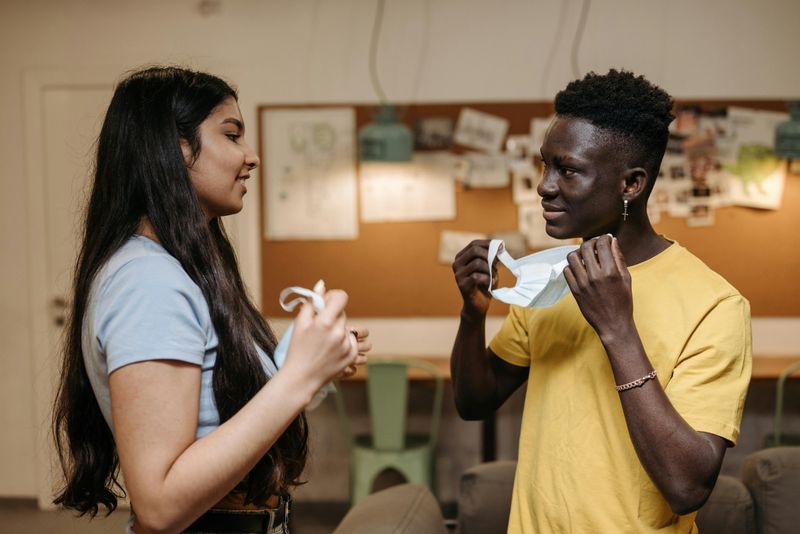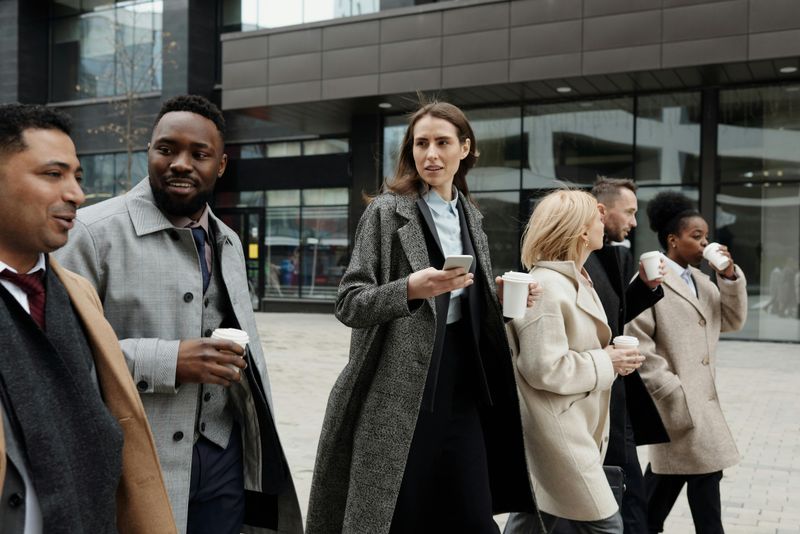13 Signs Someone Secretly Resents You (Even If They Act Friendly)

Sometimes, individuals who appear to be friendly may harbor secret resentment. Recognizing these signs can be crucial to understanding true intentions and maintaining healthy relationships. Hidden animosity often manifests in subtle, indirect ways, making it essential to pay attention to nuances in behavior and communication. This guide explores thirteen distinct signs that someone might secretly resent you, even if they outwardly act friendly. By acknowledging these signs, you can navigate social dynamics more effectively and address any underlying tensions. Understanding these indicators not only sharpens your emotional intelligence but also empowers you to build more genuine connections with those around you.
1. Backhanded Compliments

“That outfit really suits you! It hides your curves well,” they say with a smirk. Backhanded compliments are like polished insults wrapped in the guise of praise. They leave you questioning their sincerity and often feeling worse than before. Ever encountered a compliment that felt more like a dig? It’s a subtle form of resentment that undermines confidence.
Real compliments lift you; these drag you down. Such remarks can be hard to spot, masked in friendly tones but carrying an edge. Their true intent? To make you feel small while appearing supportive, a classic sign of concealed animosity.
2. Forced Politeness

“Oh, it’s so nice to see you,” they say, but their smile doesn’t quite reach their eyes. Forced politeness is the art of pretense, where friendliness feels more like a mechanical act than genuine warmth. Have you ever felt an icy undertone in what seemed like a warm greeting?
It’s this rehearsed friendliness that raises red flags. Genuine interactions flow naturally, but here, there’s a stiffness that can’t be ignored. The disconnect between words and emotions suggests deeper feelings at play, often resentment masked by civility. Look past the surface to sense the true vibe beneath.
3. Excluding You Subtly

“Oh, did I forget to invite you?” they ask, with feigned innocence. Subtle exclusion isn’t always overt but it leaves a mark, a quiet reminder of where you stand. It’s the forgotten invites, the missed messages that play into a pattern. Ever felt like the odd one out, wondering if it’s just you? These “accidents” aren’t always as innocent as they seem.
The casual disregard hints at a bigger picture, an unspoken wish to exclude. Such behavior betrays underlying resentment, a passive way of pushing you to the periphery while maintaining a facade of friendliness.
4. Hidden Eye Rolls or Sighs

A barely concealed eye roll, a whispered sigh. These gestures speak volumes, betraying the irritation that words try to hide. Body language often reveals what the tongue conceals. Notice how these subtle signs seep through the cracks of a friendly facade?
They signal the underlying tension, the unspoken thoughts left unsaid but not unnoticed. Such actions, though minor, accumulate to reveal hidden resentments. They add weight to interactions, casting a shadow on seemingly cordial exchanges. Look beyond the smiles, listen to the silent language of discontent that’s often louder than words.
5. Excessive Sarcasm

“Oh, great idea, Einstein,” they say with a smirk. Excessive sarcasm often cloaks barbs in a veil of humor. While it may seem playful, it can sting, a subtle weapon wielded to express disdain without direct confrontation.
Ever felt the burn of a “joke” that hits too close to home? Sarcasm, in excess, acts as a shield, deflecting from genuine interaction and revealing underlying resentment. It’s humor tinged with bitterness, leaving the recipient off-balance. Beneath the laughter lies a truth, masked by wit, that speaks louder than the words themselves. Listen closely to what’s unsaid.
6. Quick to Compete With You

Celebrating a win? They seem eager to outshine you, shifting the spotlight. The urge to compete overrides the joy of shared success. Ever noticed how some can’t celebrate without adding their own achievements into the mix? It’s less about you and more about reinforcing their own standing. This behavior reflects insecurity and hidden resentment.
Instead of genuine happiness, there’s a drive to prove superiority. It’s a silent contest, played out in the guise of friendly banter, yet carries the weight of unspoken rivalry. Watch for this sign, as it often masks deeper feelings than mere jest.
7. Selective Listening

“Oh, sorry, what were you saying?” they ask, for the third time. Have you ever experienced the frustration of repeating yourself, only to see their eyes glaze over? Selective listening is more than just inattentiveness; it’s a sign of disregard. It reveals a lack of interest, an underlying wish to undermine your words.
Conversations are a two-way street, but here, the path seems blocked. Their disinterest speaks volumes, suggesting your input is neither valued nor desired. This passive dismissal is a subtle form of resentment, cloaked in the mask of a half-hearted listener.
8. Unenthusiastic Support

“That’s nice,” they say, leaving you cold. When your accomplishments are met with lackluster praise, it raises a flag. Unenthusiastic support can be as revealing as blatant criticism. Ever shared good news and felt the enthusiasm was lacking?
The tepid response often hints at underlying resentment. Instead of genuine happiness, there’s a forced acknowledgment, as though cheering for you is a chore. It’s an emotional disconnect, one that speaks to deeper feelings hidden beneath the surface. Their indifference isn’t just apathy; it’s a subtle sign of unresolved animosity masked by civility.
9. Passive-Aggressive Behavior

“I said I’d do it, didn’t I?” they might say, but their actions tell a different story. Passive-aggressive behavior is a contradiction wrapped in civility. Have you ever been on the receiving end of a task done poorly, or not at all? Their words agree but actions fall short.
It’s a silent rebellion, reflecting feelings they won’t speak aloud. This behavior reveals underlying resentment, disguised as agreement. It’s the task intentionally forgotten or done with visible reluctance, masked by a smile. Beneath the friendly exterior lurks frustration, simmering just below the surface.
10. Talking Behind Your Back

“I heard they said what?” you ask, caught off guard. Gossip is a powerful weapon, used to undermine without confrontation. Have you ever felt the chill of words spoken in your absence? It’s not just idle chat; it’s a calculated move to sway opinion.
The whispers spread like wildfire, casting doubt and sowing discord. Such behavior hints at hidden resentment, a refusal to address issues directly. Instead, they choose the shadows, where words carry the weight of animosity unseen. Watch for the signs, as what’s said behind closed doors reveals more than doors left open.
11. Undermining You Subtly

“I think what they meant to say is…” they interject, taking control. Subtle undermining is an art, perfected by those who harbor hidden resentments. Ever felt your words twisted, your achievements downplayed? It’s a tactic meant to chip away at confidence.
Their interjections may seem helpful, but the intent belies resentment. By redirecting credit or undercutting your efforts, they aim to diminish your role. The facade of assistance masks a deeper motive, a wish to see you falter. Recognize this behavior as a sign of veiled animosity, a quiet rebellion against your success.
12. Overly Critical About Small Things

“Did you really mean to do that?” they ask, scrutinizing every detail. Overly critical behavior often stems from hidden insecurities and resentment. Have you ever felt nitpicked beyond reason, your smallest errors magnified? It’s a tactic that aims to destabilize, to hold you accountable to impossible standards.
The focus on minutiae distracts from the bigger picture, allowing resentful feelings to play out. It’s more than mere perfectionism; it’s a subtle attack, designed to make you question yourself. Such criticism, though seemingly innocuous, reveals a deeper discontent beneath the veneer of concern.
13. Smiles That Don’t Reach Their Eyes

“Great to see you,” they say, but their eyes tell a different story. A smile is often seen as a universal sign of warmth, yet not all smiles are created equal. Ever noticed a smile that lacked genuine warmth, where tension lurks beneath the surface? It’s a facade, where the eyes betray true feelings. This discord between expression and emotion hints at underlying resentment.
The smile is a mask, worn to maintain social appearances while concealing true sentiments. Such smiles are fleeting, revealing the strain of hidden animosities that words alone won’t admit.

Comments
Loading…